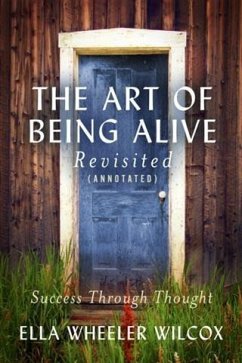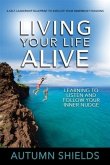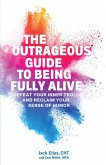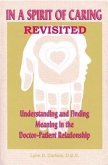I found this book in an antique shop in Fremantle, Australia and picked it up, out of curiosity. When I flicked through the pages I was fascinated by the clarity and relevance of the few sentences I had read. I asked myself: "More than one hundred years ago they had already books about self-development?" I was so absorbed, I decided to buy the book.
I continued reading and wondered who this person, who this author, was. I did some research and what I found fascinated me even more. For example, a book review of 1914 by Walter de la Mare, published by "The Times Literary Supplement," states the following:"...fragments that remain rather than by the elixir they have wasted and the miracle it represents." Or this: "She heartily denounces the get-rich-quick method of financiering." For those inquisitive minds, the whole book review text is contained in the notes, see for yourself and you will find that it indeed makes an interesting read.
Until I came across this book, somehow I had this belief that self-improvement and self-help books are a sign of our modern times. As this book is testimony, the whole subject of self-improvement goes back a long time and people had always tried to better themselves and even then already, wanted to improve their lives. I was also surprised to learn how little has changed in one hundred years. For example in the chapter, "Modern Marriage", Ella Wheeler Wilcox writes: "WHY the contention, the separations, the ever-increasing ratio of divorces that follow the marriages of to-day? In short, what is the matter with the modern marriage?"
There are many more examples how Ella's writing is still relevant here and now, therefore I decided it would be a loss if her thoughts were not exposed to other people who are interested in self-improvement and never have had the opportunity to read her thoughts on this subject.
I continued reading and wondered who this person, who this author, was. I did some research and what I found fascinated me even more. For example, a book review of 1914 by Walter de la Mare, published by "The Times Literary Supplement," states the following:"...fragments that remain rather than by the elixir they have wasted and the miracle it represents." Or this: "She heartily denounces the get-rich-quick method of financiering." For those inquisitive minds, the whole book review text is contained in the notes, see for yourself and you will find that it indeed makes an interesting read.
Until I came across this book, somehow I had this belief that self-improvement and self-help books are a sign of our modern times. As this book is testimony, the whole subject of self-improvement goes back a long time and people had always tried to better themselves and even then already, wanted to improve their lives. I was also surprised to learn how little has changed in one hundred years. For example in the chapter, "Modern Marriage", Ella Wheeler Wilcox writes: "WHY the contention, the separations, the ever-increasing ratio of divorces that follow the marriages of to-day? In short, what is the matter with the modern marriage?"
There are many more examples how Ella's writing is still relevant here and now, therefore I decided it would be a loss if her thoughts were not exposed to other people who are interested in self-improvement and never have had the opportunity to read her thoughts on this subject.
Dieser Download kann aus rechtlichen Gründen nur mit Rechnungsadresse in A, B, BG, CY, CZ, D, DK, EW, E, FIN, F, GR, HR, H, IRL, I, LT, L, LR, M, NL, PL, P, R, S, SLO, SK ausgeliefert werden.









